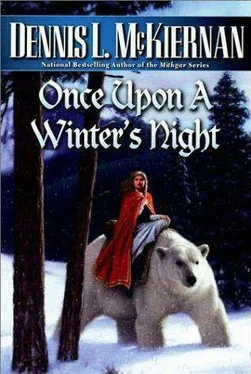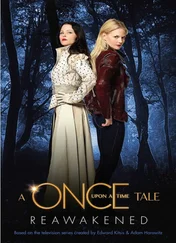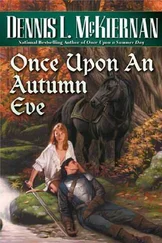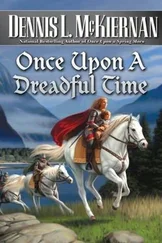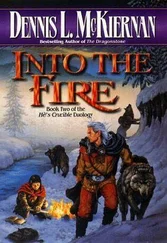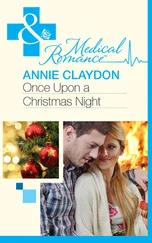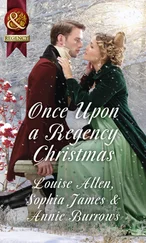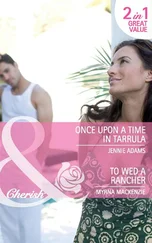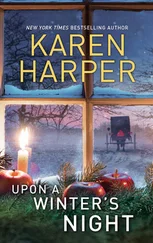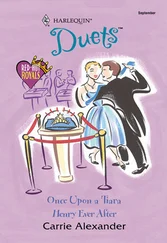Dennis McKiernan - Once Upon a Winter's Night
Здесь есть возможность читать онлайн «Dennis McKiernan - Once Upon a Winter's Night» весь текст электронной книги совершенно бесплатно (целиком полную версию без сокращений). В некоторых случаях можно слушать аудио, скачать через торрент в формате fb2 и присутствует краткое содержание. Жанр: Фэнтези, на английском языке. Описание произведения, (предисловие) а так же отзывы посетителей доступны на портале библиотеки ЛибКат.
- Название:Once Upon a Winter's Night
- Автор:
- Жанр:
- Год:неизвестен
- ISBN:нет данных
- Рейтинг книги:4 / 5. Голосов: 1
-
Избранное:Добавить в избранное
- Отзывы:
-
Ваша оценка:
- 80
- 1
- 2
- 3
- 4
- 5
Once Upon a Winter's Night: краткое содержание, описание и аннотация
Предлагаем к чтению аннотацию, описание, краткое содержание или предисловие (зависит от того, что написал сам автор книги «Once Upon a Winter's Night»). Если вы не нашли необходимую информацию о книге — напишите в комментариях, мы постараемся отыскать её.
Once Upon a Winter's Night — читать онлайн бесплатно полную книгу (весь текст) целиком
Ниже представлен текст книги, разбитый по страницам. Система сохранения места последней прочитанной страницы, позволяет с удобством читать онлайн бесплатно книгу «Once Upon a Winter's Night», без необходимости каждый раз заново искать на чём Вы остановились. Поставьте закладку, и сможете в любой момент перейти на страницу, на которой закончили чтение.
Интервал:
Закладка:
Dennis L. McKiernan
Once Upon a Winter's Night
Foreword
I don’t remember when I heard my first fairy tale or even what it was. It could have been Hansel and Gretel, for I did act the part of Hansel in a school play when I was but six.
Nor do I recall when I actually read my first fairy tale, though I do remember checking out fairy-tale books from the library when I was nine or so. I read through the full spectrum of the Andrew-Lang-edited fairy-tale books, and I do mean “spectrum,” for the books were called The Crimson Fairy Book, The Red Fairy Book, The Pink Fairy Book, and on through Orange, Yellow, Olive, Green, Lilac, Blue, Violet, Grey, and Brown: i.e., the spectrum.
I loved those books, for, just as a Captain Future Quarterly had launched me into science fiction, these launched me into fantasy.
But, you know, it is my contention that many of the old fairy stories were severely shortened as the number of bards dwindled, and the people who were left to remember and pass on the tales simply didn’t have the oratory skills to tell stories of epic scope. Too, we also know they were altered to help promote different religions from those in the societies where told, hence they were shortened merely to get the point across.
And so, it is my thesis that back when bards and poets and minstrels and the like sat in castles or in hovels or mansions or by campfires, or entertained patrons as they travelled along the way, surely the original stories were much longer, with many more wondrous encounters than the later, altered versions would have them be. After all, in the case of a bardic storyteller, she or he would hold audiences enthralled for long whiles with accounts of love and seduction and copious sex and bloody fights and knights and witches and dragons and ogres and giants and other fantastic beings all littering the landscape of the tale as the hero or heroine struggled on.
Don’t get me wrong, I am not putting down the altered versions of the fairy tales; after all, I loved them. What I am saying instead is I’ve always felt that many wonders were lost by the shortening and altering of each folk and fairy tale to fit a different song from that which the old bards and my Celtic ancestors would sing.
For this reason, I decided to tell a fairy tale (in the traditional manner and style) as I would like for it to have been told had I either been one of those bards or one of those in the audience. Consequently, in telling the story herein, just as I think did happen in the past, I too have amended the tale, adding back those things-sex and fights and other such trappings-which might or might not have been in the original telling once upon a time long, long ago in a castle far, far away.
The tale I chose is one of my favorites, one you can find in The Blue Fairy Book, one that is said to have come from the Norse. But, you know, I always thought that this particular story should have come from the vales of France-it is a romance, after all, and who better than the French to have started it? Hence, sprinkled here and there throughout my telling, you’ll find French words to give it that flavor. You’ll also find other languages scattered therein, but the seasoning of French is strong.
By the bye, in my version of The Blue Fairy Book this story is but eleven pages long. I thought that much too short, and, as is apparent, I did lengthen it a bit.
Dennis L. McKiernan
Tucson, Arizona, 2000
1
They lived in a one-room, stone cottage on the edge of Faery, there where the world ends and the mystical realm begins, there where golden sunshine abruptly becomes twilight all silver and grey, there where night on one side instead on the other is darkness, sometimes absolute, sometimes illumined with a glorious scatter of bright stars and silvery moonlight, sometimes illumined by small, dancing luminosities atwinkle among hoary trees, there where low, swampy lands and crofters’ fields and shadowed forests on this side change on that side into misty fens and untilled meadows and deep, dark, mysterious woods.
There at the edge of Faery…
There at the edge of the world…
There where they lived in days long past, when the mystical yet touched the real.
They were a large family-father, mother, six daughters, and a son-scratching out a mean living from a meager plot of land on this side of the marge where the world ended and Faery began. Yet the meek father and bitter mother and their six daughters-ranging in age from twenty to sixteen and in manner from whining to cheerful and sweet-and their uncomplaining young son of nine managed to eke out a bare existence from the scant land and to make do with what they had. Although they had enough to eat, beyond that they did not live well, working the poor soil, laboring hard, father and mother and daughters. As to the son, he was quite sickly, yet even he did what he could, though he did tire most easily and seemed always out of breath. It was but a scrape of land, standing remote at the edge of the world, and passed down through generations from poor fathers to equally poor sons. Neighbors they had none, the nearest croft miles away, the town even farther. None of the daughters was married, and no dowry did any have, and no suitors came to call, living in poverty and isolation as the daughters did. And so they were yet maidens all, though in face and form quite fair, especially the youngest with her golden hair, who often sang in a voice that would put the larks to shame as she worked in the field near the woods, there on the edge of Faery.
But then…
… Once upon a winter’s night…
“Oh, Papa, listen to the wind howl,” said Camille, raising her head from the hand-carved game of echecs over which she and Giles pondered, some of the shaped pieces arrayed on the squares of the board, other pieces sitting to one side, captured and no longer in play.
“Howl indeed, and I am freezing,” grumbled dark-haired Lisette, eldest of the six sisters, hitching the blanket tighter ’round her shoulders, then huddling closer to the meager fire and reaching out with her cold hands.
The chimney moaned as would a lost wraith, and the bound thatch across the sparse beams above rattled and thumped and shook like a rat in a terrier’s jaws, and dust drifted down to swirl about in the darts of air whistling in through chinks in between stones in the walls.
“Move back, Lisette,” snapped Joie and Gai nearly together, the twins in their shared blanket crowding inward, Gai adding, “you are taking all the heat for yourself.” Colette and Felise chimed in, agreeing, at the same time crowding inward as well.
“Now, now, mes filles,” began the father, “do not bicker. Instead-” but his words were cut short.
“Complain they should, Henri,” snapped the mother, Aigrette, her downturned mouth disapproving, her glaring blue eyes full of ire as she pulled at the blanket she shared with him. “I told you time and again this summer to mortar the gaps, but you didn’t, and now the wind blows as fiercely within this hovel as it does without.”
As the tempest rattled the plank door, through the firelight the father looked about the mean dwelling, with its hard-packed clay floor and rough, field-rock walls and its aging and thinning reed roof. This single room was all they had, a fireplace in one corner, now crowded ’round by the family on three mismatched chairs and a wobbly, three-legged stool and a small, splintery bench. Near the fireplace stood an inadequate worktable for the preparation of meals, such as they were, with a wretched few pots and pans and utensils hanging from the beams above. Several rude shelves on the wall at hand held a small number of wooden bowls and dishes and spoons. A water bucket sat on a shelf as well, a hollowed-out gourd for a dipper hanging down from the bail. To one side of the fireplace stood a tripod holding a lidded iron kettle dangling empty. Swaying in the shadows above, strings of beans and roots and turnips and onions and leeks and other such fare depended from the joists. Ranged along the walls stood a cot for the boy and three beds, two of which were stacked-upper and lower, shared by three girls each-and in the center of the room stood the table on which they ate, one short leg propped on a flat stone to keep the whole of it from rocking. Pegs here and there jammed into wall cracks held what few garments they owned, and by the door a meager coat for braving the cold hung over a single pair of large boots. In one corner a coarse burlap curtain draped from a rough hemp cord, behind which sat a wooden chamber pot, in truth nought but a bucket, though it did have a lid.
Читать дальшеИнтервал:
Закладка:
Похожие книги на «Once Upon a Winter's Night»
Представляем Вашему вниманию похожие книги на «Once Upon a Winter's Night» списком для выбора. Мы отобрали схожую по названию и смыслу литературу в надежде предоставить читателям больше вариантов отыскать новые, интересные, ещё непрочитанные произведения.
Обсуждение, отзывы о книге «Once Upon a Winter's Night» и просто собственные мнения читателей. Оставьте ваши комментарии, напишите, что Вы думаете о произведении, его смысле или главных героях. Укажите что конкретно понравилось, а что нет, и почему Вы так считаете.
